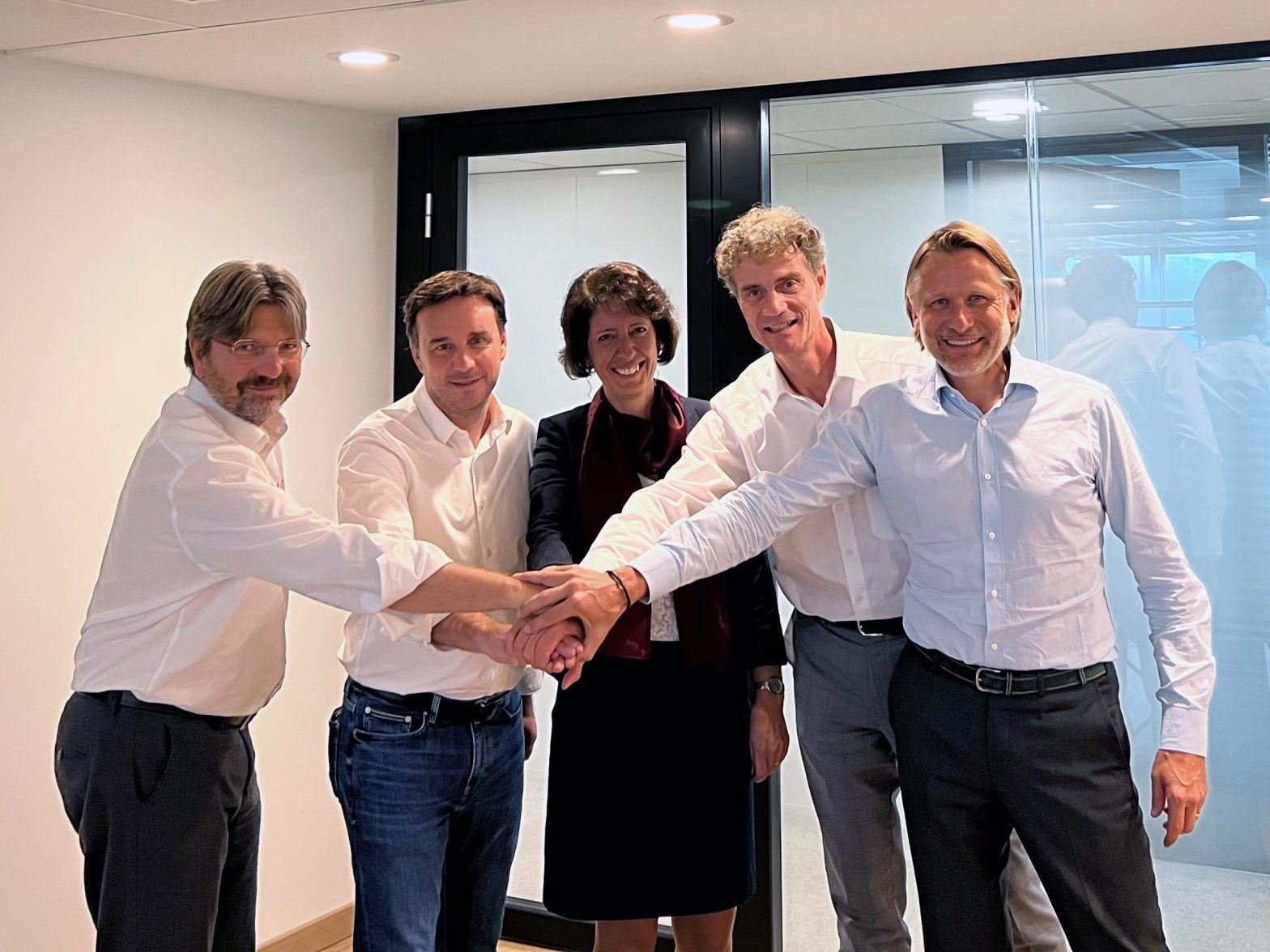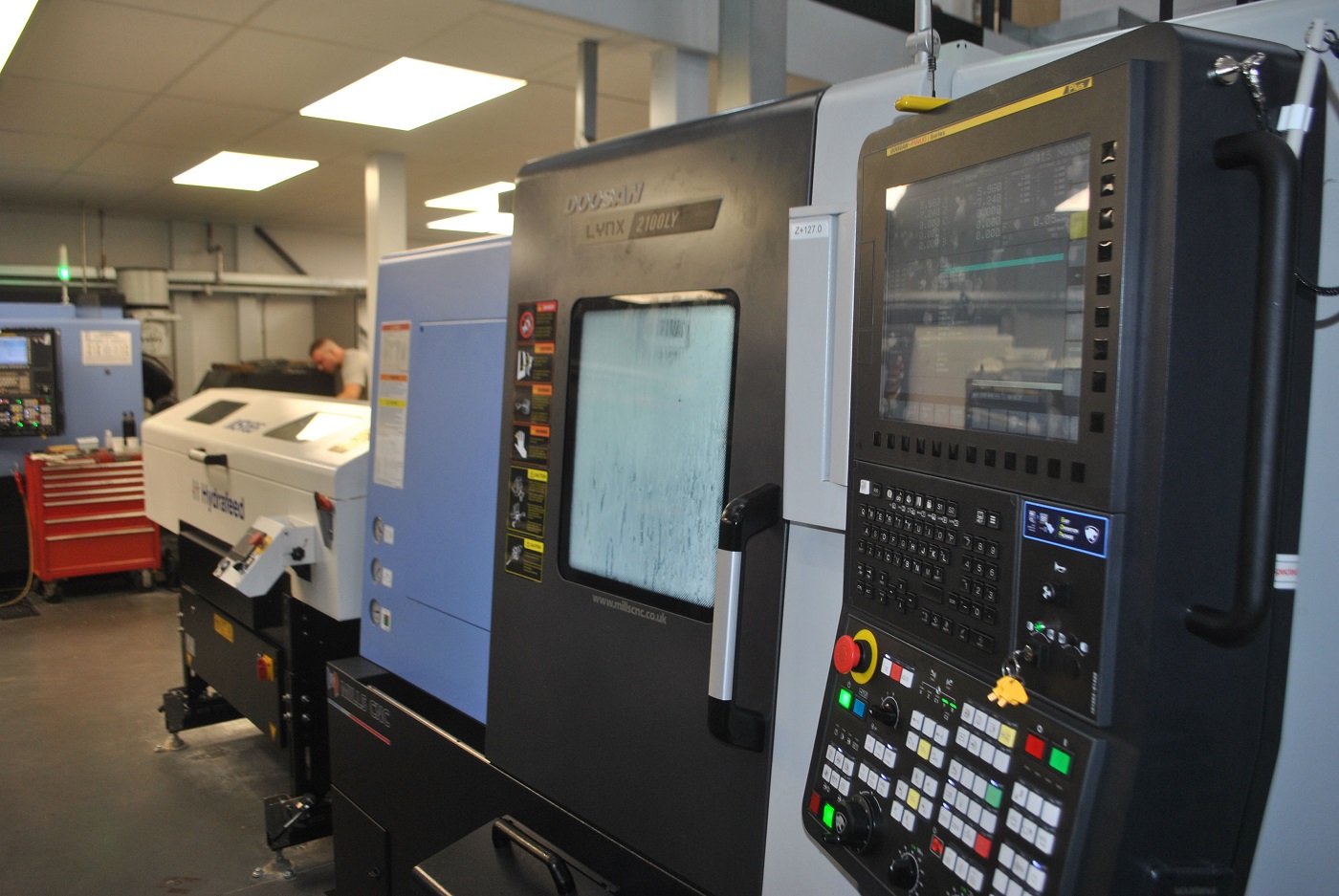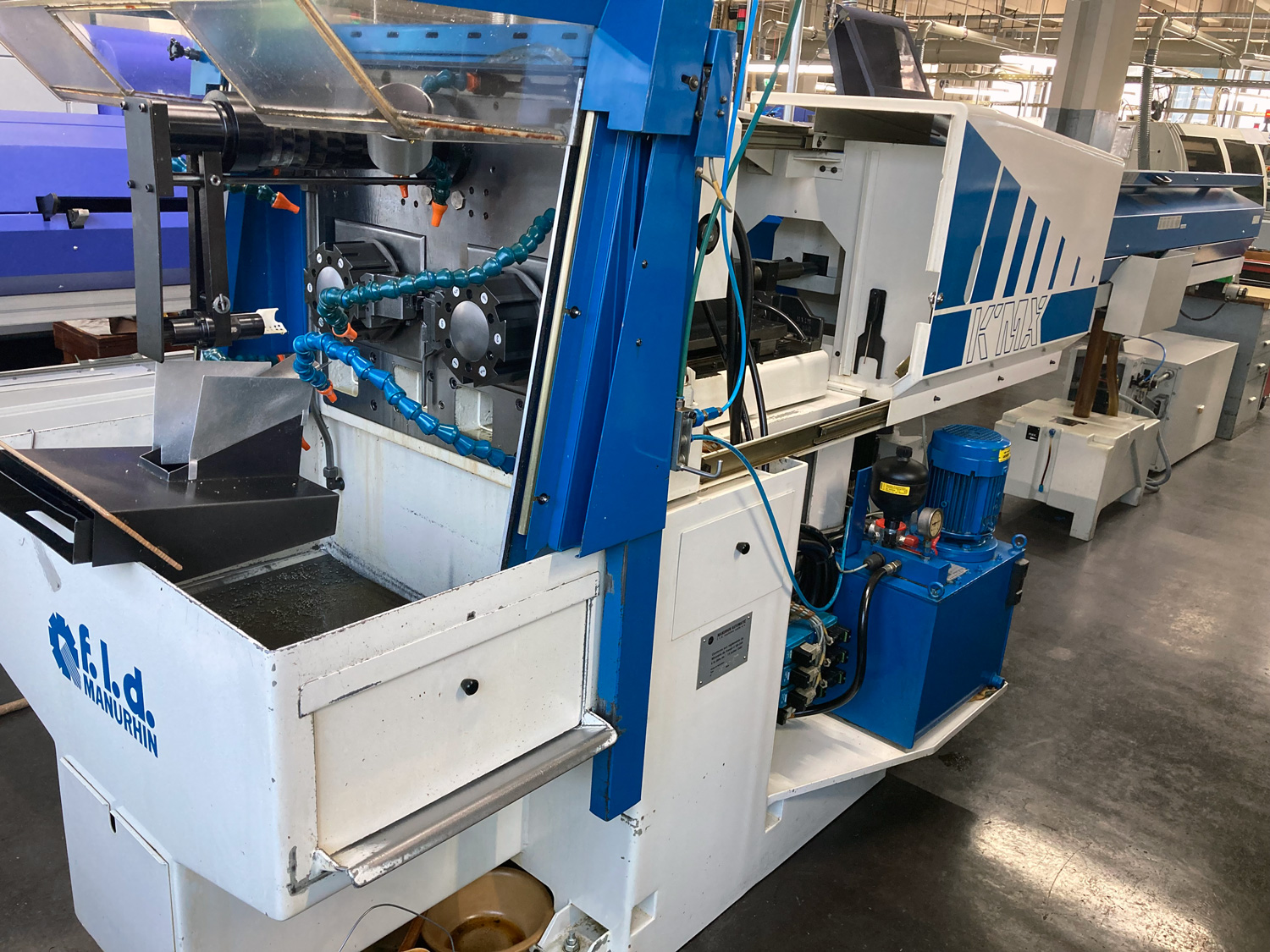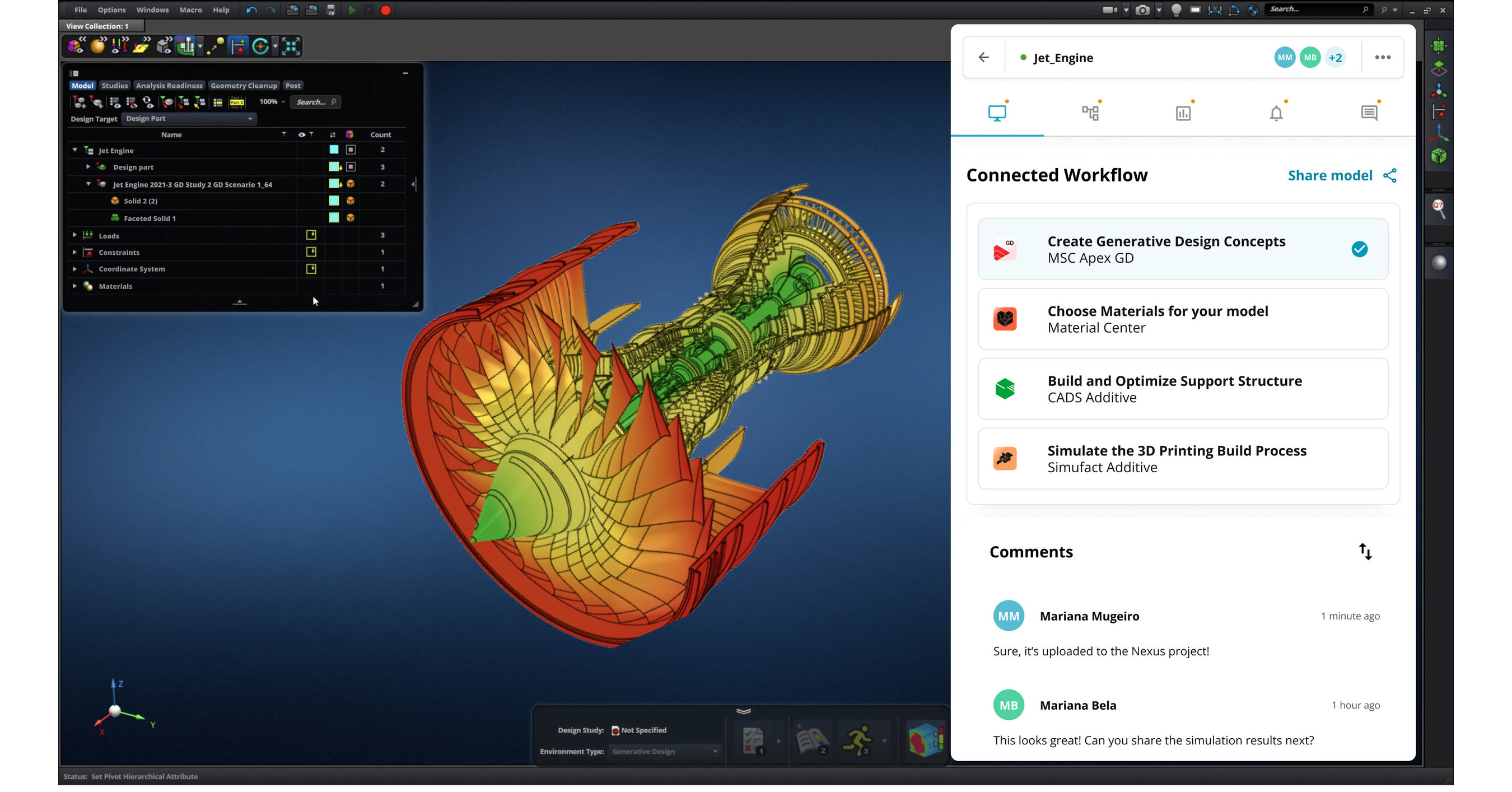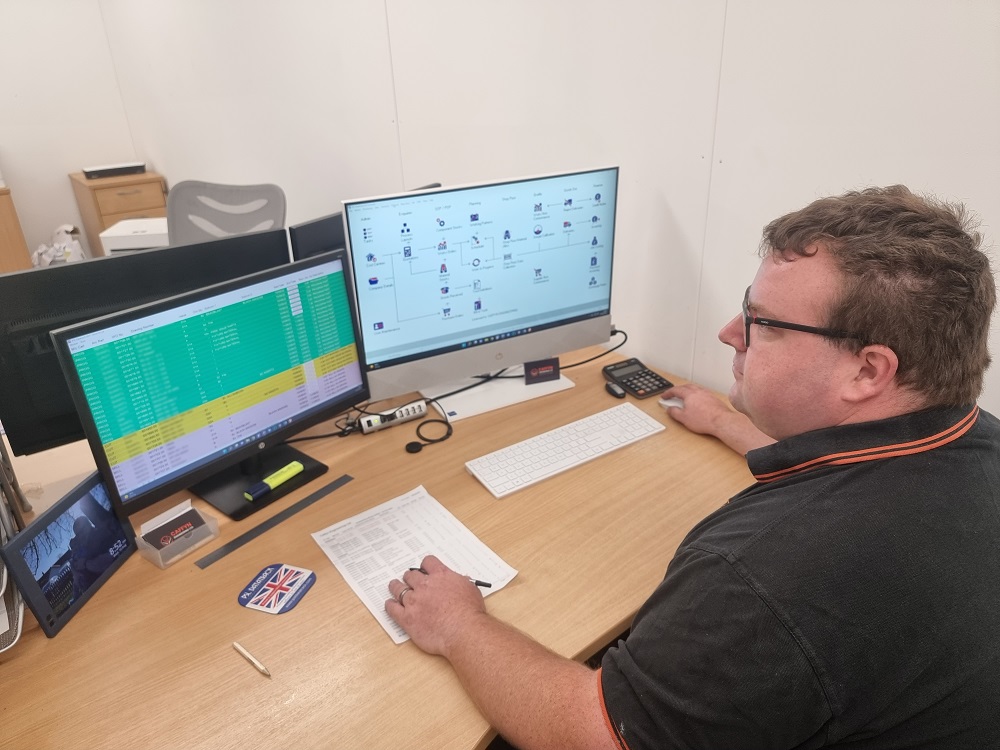Mills CNC, the exclusive distributor of DN Solutions’ (previously Doosan) machine tools in the UK and Ireland, has supplied leading precision subcontract specialist MJ Engineering with three high-performance machine. Equipped with the latest Fanuc controls and all ordered at the same time in February 2022, the machines comprise two 6” chuck Lynx 2100LYA compact lathes and a large-capacity DNM 6700 three-axis vertical machining centre.
The machines were installed at MJ Engineering’s 7500 sq ft manufacturing facility in Market Harborough between April and August 2022, and are being used to machine complex, high-precision components for a number of UK and international customers operating in the motorsport, oil and gas and aerospace sectors, to name but a few.
This latest investment is significant and totally in keeping with family-owned MJ Engineering’s commitment to continuous improvement which, according to managing director, David Simpkin, “enables us to provide customers with high-quality, competitively-priced machined components delivered on time, every time”. It also is proof positive that the company’s progressive and strategically-led capex investment programme, in place for over 10 years but interrupted by the pandemic, is now back in full swing.
Says Simpkin: “Prior to the Covid-19 outbreak, we regularly invested in new, advanced machine tools and ancillary technologies. On average, since 2012, we acquired two new machines every year as a route to increasing our machining capacity and improving our machining capabilities.”
Since 2012, when MJ Engineering relocated to its current premises, the company has invested in 12 new Doosan machines – some to replace older machines – others to provide additional capacity. A common theme running through the company’s most recent investments is a focus on multi-tasking machine tools that has enabled the company to improve its productivity and process efficiencies by machining precision parts to completion in fewer set-ups with reduced labour and fixturing costs.
“Our most recently acquired lathes are equipped with integrated Y axes,” says Simpkin. “This, in addition to many of our lathes with bar feeders, has resulted in us becoming more productive and better able to meet the stringent lead-time requirements demanded by our motorsport and oil and gas customers.”
The same emphasis on multi-tasking capabilities is evident with its machining centres. MJ Engineering’s new DNM 6700 and a DNM 650 II, purchased back in 2015, both have multi-axis capabilities achieved via the use and interchange of a 4th-axis unit. Indeed, the company is a firm advocate of Doosan machine tools, having invested in 12 machines since 2009.
Explains Simpkin: “Doosan lathes and machining centres are technically-excellent, high-performance machines. They are reliable and represent good value. Our experience with Doosan machines supplied by Mills CNC meant that when we decided to invest in new machines at the start of the year, we naturally approached Mills to discuss our requirements.”
Like many UK component manufacturers, the outbreak of the pandemic in 2020 and subsequent lockdown restrictions, had an impact on MJ Engineering and, in particular, on its Formula One customers: the upshot being the postponement and cancellation of a number of races plus a significant scaling back of motorsport teams’ research and development activities and their subcontract machining requirements.
“It did have an impact on us as we work with many Formula One team,” recalls Simpkin. “However, owing to a number of factors, the pandemic didn’t hit us as hard as it did many other manufacturers.”
Like many companies, MJ Engineering responded positively to the national Ventilator Challenge which was announced by the Government in March 2020. During an eight-week period (April – June), the company was contracted to machine, in large volumes, high-precision ventilator components made primarily from PTFE and aluminium. To achieve the volumes required, MJ Engineering’s four Lynx lathes, integrated with bar feeders, were running 24/7 for eight weeks.
“It was a tall order but we, and our Lynx lathes, were up to the task,” says Simpkin. “The temporary postponement of our motorsport business meant we had the capacity available, and our in-house turning technology and unrivalled machining expertise of our staff enabled us to complete the contract.”
In response to Covid-19, an existing MJ Engineering customer involved in the manufacture and supply of oxygen cylinders, significantly ramped up its production requirements from 2000 to 12,000 parts per month.
“The increase in demand from this long-established customer was unexpected but, with the additional capacity freed-up by the disruption to our motorsport business, we were able to machine the parts, in the volumes required, on one of our Lynx 220LM (chucking) lathes,” explains Simpkin.
Being declared ‘essential and protected’, the oil and gas industry was not subject to the same restrictions as many other sectors. As a recognised ‘specialist’ precision subcontractor with years of experience in the sector, and with proven expertise in machining tough and difficult-to-machine materials to tight geometric tolerances and super-fine surface finishes, MJ Engineering’s oil and gas business suffered no serious decline during the pandemic.
With business getting back to normal, and the motorsport sector in particular returning to pre-Covid levels, MJ Engineering is on the investment trail once more. The company’s most recent three-machine-tool order is testament to that.
Says Simpkin: “Two of the new machines we acquired replace older models; the third machine was purchased to give us extra capacity.”
The first 6” chuck Lynx 2100LYA, equipped with a 15 kW/6000 rpm spindle and a 12-station servo-driven turret, has a ±52.5 mm Y axis and driven tooling capability (5000 rpm).
This machine provides MJ Engineering with additional turning capacity and is finding use as a second-operation chucking lathe, machining the back-end of parts.
MJ Engineering’s DNM 6700 is a large-capacity vertical machining centre that has significantly strengthened the company’s milling capabilities. The machine is equipped with an 18.5 kW/12,000 rpm spindle, a 30-position ATC and a 1500 x 670 mm worktable. Notably, the machine has replaced a smaller DNM 400 machining centre acquired by MJ Engineering in 2010 and joins the previously mentioned DNM 650 II vertical machine to provide the company with an impressive milling resource.
With its large worktable, the DNM 6700 is able to machine multiple smaller parts in a single set-up, as well as processing larger components: a recent job involved the machining of a 1000 x 600 mm forged titanium component in a cycle time of 5 hours.
Similar to the Lynx 2100LYA installed in April (except with a 16-station turret), the latest machine has replaced a Lynx 220LM lathe purchased by the company in 2015. This machine has been integrated with a bar feeder to enable continuous production and the ability to run unattended overnight.
Being committed to continuous improvement involves more than investing in new machine tools – important as that is. To improve its performance even further, MJ Engineering has recently invested in a new ERP system to manage day-to-day business operations in real time and is actively considering developing its own apprenticeship programme to help train and develop new talent.
Future upgrades to MJ Engineering’s existing machine tool portfolio are already well underway.
For further information www.millscnc.co.uk






